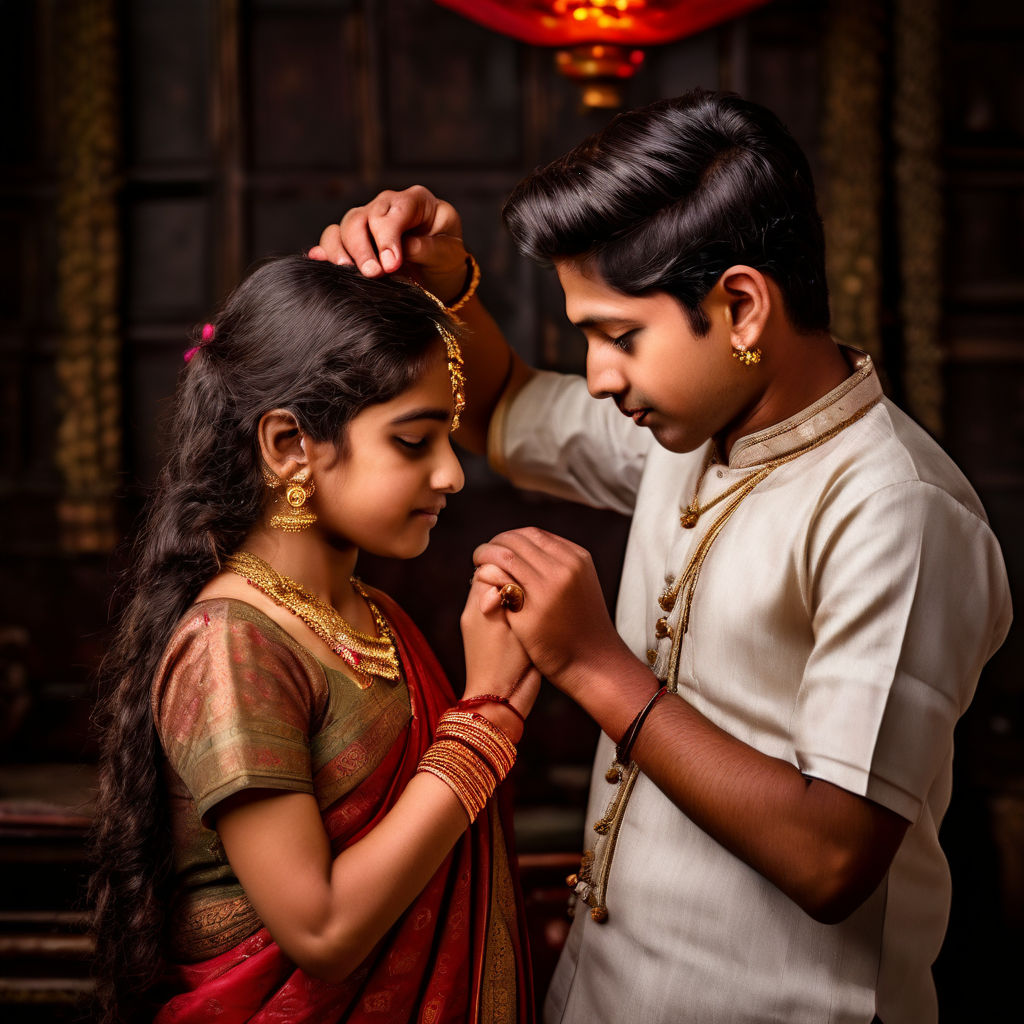Yama and Yamuna are also known as Yami, and both are the children of Surya, the Sun God and his wife Saranyu. According to the ancient texts, Surya and Saranyu had three children: the twins Yama and Yamuna, and their son Vaivasvata Manu, the progenitor of humanity.
Yama: Yama is seen as the God of Death and is considered one of the several Lokapalas, essentially the protectors of cardinal directions. As the god of death, Yama is deeply involved in the Hindu eschatology in judging souls and in ensuring that those souls get the deserved fruits, be it good or bad depending on their deeds on earth.
Yamuna: Yamuna also known as Yami is depicted as one of the sacred rivers of India which played a major role in religious and social point of views.
Yama and Yamuna are also known to be siblings and have a special affectionate relation where Yama loves his sister Yamuna immensely. They have many stories, in which care and concern for each other can be defined as primary.
The festival of Bhai Dooj which falls the second day after Diwali, is similarly dedicated to the god of death, Yama and his sister, Yamuna. Legend has it that one day after a long time Yama decided to pay a visit to his sister Yamuna. Yamuna’s happiness knew no bounds seeing her brother enter the house and she embraced him lovingly. She did a ceremonial aarti and applied tilak on his forehead and cooking delicious food for him whole day.
Touched by her affection and warm reception, the god acquiesced to her wish without hesitation. Yamuna prayed for Yama come to her house every year and any brother who gets a tilak from his sister on this day should be gifted with long life and prosperity. Moved by his sister’s affection toward him, Yama agreed to give her a wish and this is how the tradition of Bhai Dooj came into being.
’Bhai dooj,’ also referred to as ‘Bhau bij,’ ‘Bhai tikka,’ or ‘Bhai Phonta,’ is a festival observed in India that focuses on the brother-sister relationship. During the festival sisters offer aarti, put tilak on the forehead of their brothers, and pray for wellbeing of their brothers. In exchange, the brothers offer certain gifts to the sisters and make a pledge to defend their lives.
Symbolism: The process of applying tilak on the forehead represents the sister’s blessings or good wishes for her brother’s well-being, protection, and success. Gifts are exchanged special to emphasize on the love that the siblings have for each other.
Rituals: For this day people tend to join their sisters and brothers to celebrate. Girls cook delicious dishes, treats for their brothers and on the day of the holiday, the families reunite.
Yama and Yamuna thus signifies the cultural importance of the bond of sibship in the Hindu way of life. Yama grants them the boon, which forms the essence of Bhai Dooj-a festival that seeks to remind people the value of such relatedness. Learn from the practices performed during Bhai Dooj, that the story of Yama and Yamuna still makes the connection of brothers and sisters intimate and closer.

